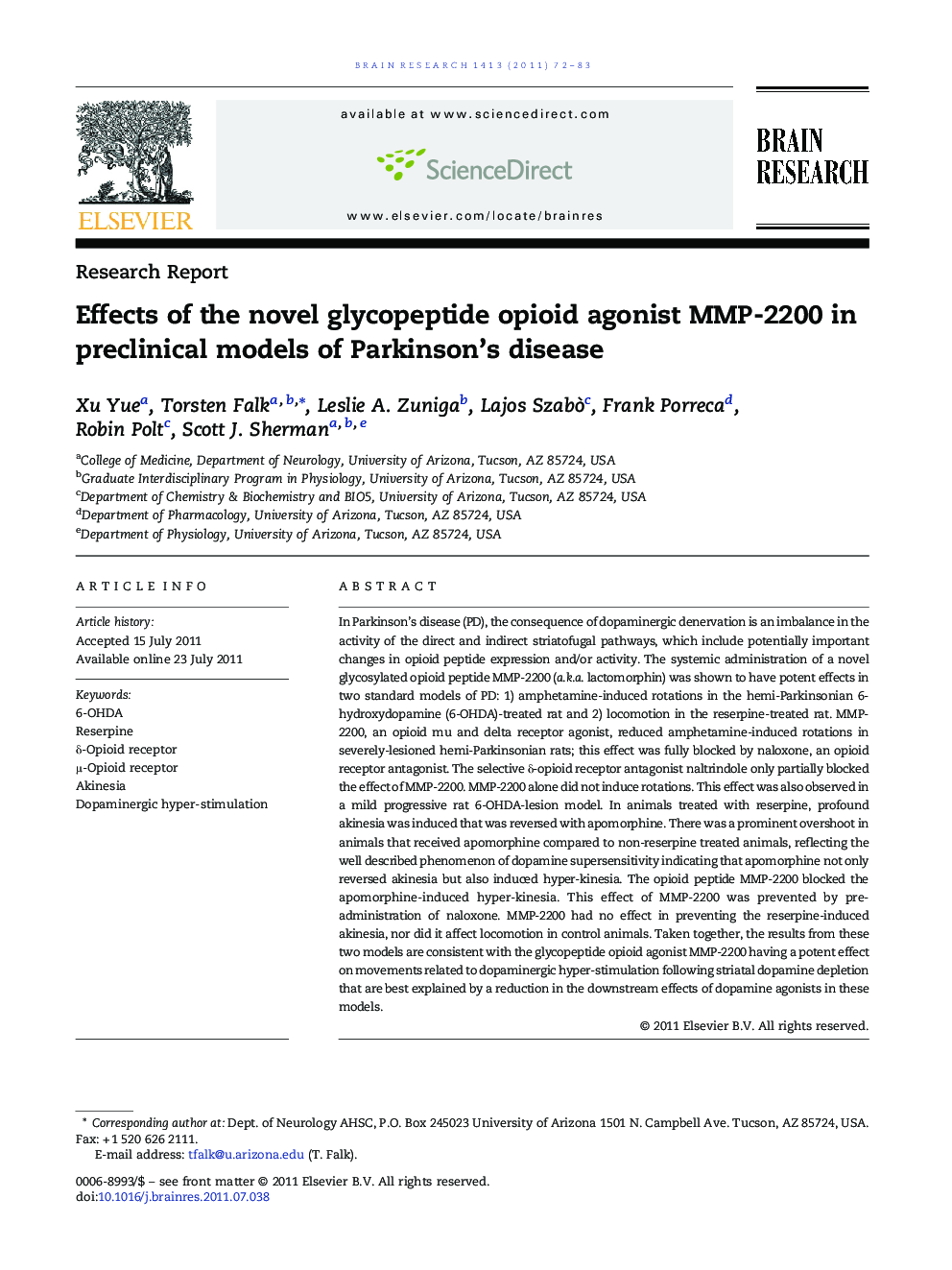| کد مقاله | کد نشریه | سال انتشار | مقاله انگلیسی | نسخه تمام متن |
|---|---|---|---|---|
| 6264750 | 1614026 | 2011 | 12 صفحه PDF | دانلود رایگان |

In Parkinson's disease (PD), the consequence of dopaminergic denervation is an imbalance in the activity of the direct and indirect striatofugal pathways, which include potentially important changes in opioid peptide expression and/or activity. The systemic administration of a novel glycosylated opioid peptide MMP-2200 (a.k.a. lactomorphin) was shown to have potent effects in two standard models of PD: 1) amphetamine-induced rotations in the hemi-Parkinsonian 6-hydroxydopamine (6-OHDA)-treated rat and 2) locomotion in the reserpine-treated rat. MMP-2200, an opioid mu and delta receptor agonist, reduced amphetamine-induced rotations in severely-lesioned hemi-Parkinsonian rats; this effect was fully blocked by naloxone, an opioid receptor antagonist. The selective δ-opioid receptor antagonist naltrindole only partially blocked the effect of MMP-2200. MMP-2200 alone did not induce rotations. This effect was also observed in a mild progressive rat 6-OHDA-lesion model. In animals treated with reserpine, profound akinesia was induced that was reversed with apomorphine. There was a prominent overshoot in animals that received apomorphine compared to non-reserpine treated animals, reflecting the well described phenomenon of dopamine supersensitivity indicating that apomorphine not only reversed akinesia but also induced hyper-kinesia. The opioid peptide MMP-2200 blocked the apomorphine-induced hyper-kinesia. This effect of MMP-2200 was prevented by pre-administration of naloxone. MMP-2200 had no effect in preventing the reserpine-induced akinesia, nor did it affect locomotion in control animals. Taken together, the results from these two models are consistent with the glycopeptide opioid agonist MMP-2200 having a potent effect on movements related to dopaminergic hyper-stimulation following striatal dopamine depletion that are best explained by a reduction in the downstream effects of dopamine agonists in these models.
âºNovel glycosylated opioid peptide MMP-2200 is opioid mu and delta receptor agonist. âºSystemically given it reduced amphetamine-induced rotation in hemi-Parkinsonian rat. âºSystemic administration blocked apomorphine-induced hyper-kinesia after reserpine. âºMMP-2200 affects movements resulting from dopaminergic hyper-stimulation.
Journal: Brain Research - Volume 1413, 21 September 2011, Pages 72-83